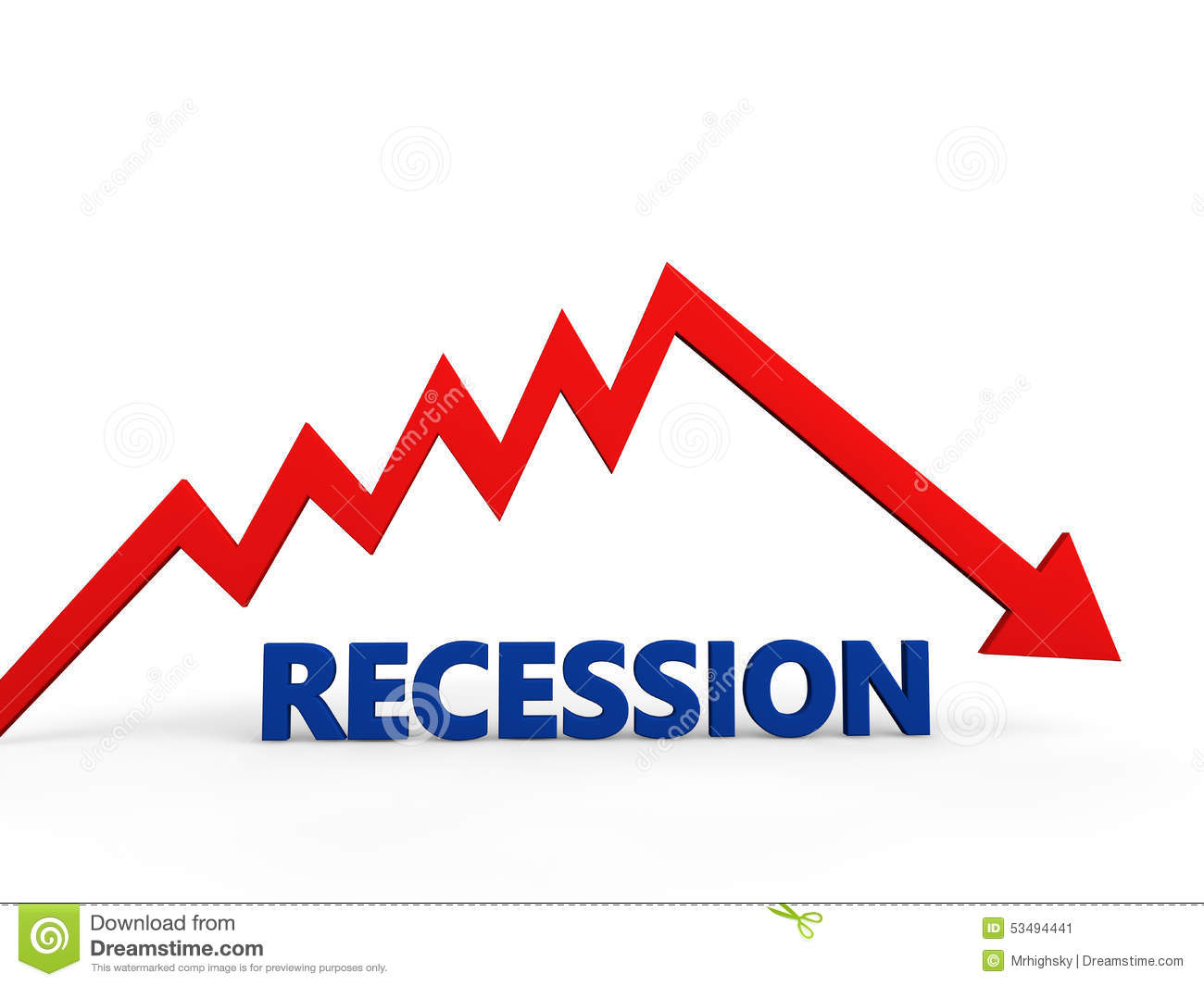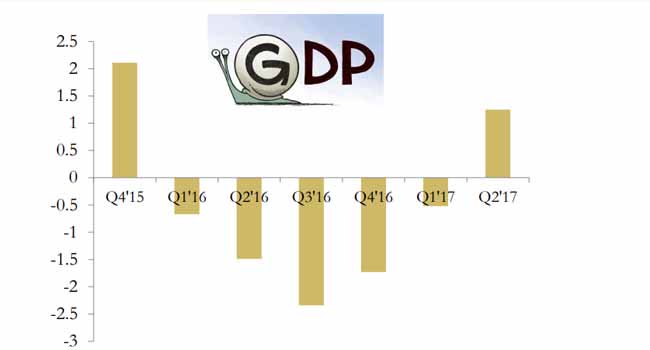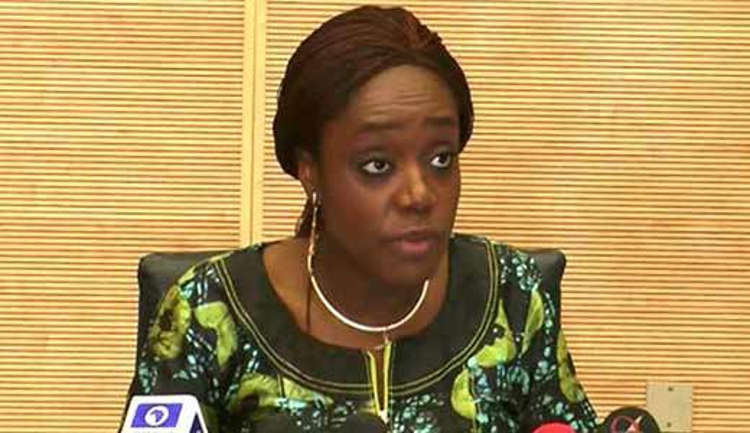BUSINESS
Recession: 196 Companies Shut Down In 2 Years, Real Sector Loses N62.184bn – M.A.N
Published
8 years agoon
By
Reporter
Despite several efforts by the Federal Government to cushion the effects of recession on the economy, recent figures from the Manufacturers Association of Nigeria (MAN) have shown that about 196 manufacturing companies shut down their operations in the last two years due to the biting recession.
This represents over 300 per cent increase compared to 45 companies reported to have closed down last year in the first year of the present administration.
Figures coming from MAN shows that about 196 manufacturing companies closed down during the recession due to harsh operating environment.
Last year, in the heat of forex restriction, MAN stated that over 45 companies were shut down as 220 Medium and Small Scale Enterprises (MSME) closed down while over two million jobs were lost. In the same vein, the association said this resulted in a huge financial loss of about N62.184 billion.
According to MAN Director of Economic and Statistics Department, Oluwasegun Osidipe, “a quick survey of MAN members and with data provided for foreign exchange losses as at the end of 2016 indicated about N62.184 billion was lost.”
The association explained that the closures and the job losses could be attributed to the unfavourable operating environment in which forex component and cost of power generation played prominent roles.
MAN stated that the share of energy cost to total cost of production in the sector is estimated at 36 per cent, which is one of the highest in the world.
“MAN survey shows that member-companies estimated annual expenditure on alternative energy source was N129.95 billion in 2016 from N58.82 billion recorded in 2015. If this amount is aggregated with billions that are paid to Discos annually, expenditure on electricity by our members, no doubt, is colossal,” Osidipe noted.
The statistics from the association said for years, electricity supply to the manufacturing sector has been abysmally poor with an average of seven hours supply and seven outages per day.
It added: “Strangely, despite the paucity in electricity supply, tariff has been increasing leading to huge amount being paid to Discos by our members on monthly basis. Our members have for long resorted to self-energy generation notwithstanding the associated huge cost.”

The association noted that the high cost of energy has been responsible for the poor competitiveness of locally manufactured products in the country, which largely has contributed to the closure and other challenges in the sector.
It added that the challenges of high inflation, dearth/high cost of borrowable funds and acute shortage of forex made the operating macroeconomic environment in first half of 2016 very unhealthy for manufacturing.
It, however, noted that MAN’s resilient evidence-based advocacy on the need to prioritise forex allocation to the manufacturing sector yielded desired result when the Central Bank of Nigeria (CBN) responded positively with the 60 per cent preferential forex allocation to the sector in the second half of 2016.
“Even though the preferential forex allocation was removed vide the forex policy of February 21, 2017, the CBN has promised to continue to accord the manufacturing sector strong priority in forex allocation,” the association said.
MAN said the preferential forex allocation regime brought life back into the sector as manufacturing activities were galvanised leading to an improved performance in the first half of 2017.
“For instance, estimate from MAN surveys shows capacity utilisation increase to 59.18 per cent in the second half of 2016 from 49.64 per cent of the corresponding period of 2015 and 44.3 per cent of first half of 2016. Similarly, local raw materials’ utilisation increased to 59.98 per cent in the second half of 2016 from 51.88 per cent of the same half of 2015 and 46.3 per cent recorded in the first half of 2016.
The survey further said that manufactured products increased to N5.02 trillion in the second half of the same year from N4.21 trillion of the same periods in 2015 and N3.76 trillion recorded in the first half of 2016 as a result of the increases in capacity utilisation and local sourcing of raw materials.
While urging the government to continue to make forex available to the sector, the Organised Private Sector (OPS) said that Federal Government may need to reconsider its position on the partial privatisation of the electricity sector, if the country wants to have regular power supply to salvage the economy.
The Nigeria Employers Consultative Association (NECA), said corporate consumers are at the receiving end of the ineptitude of the electricity sector.
The Director General of NECA, Segun Oshinowo, said the corporate citizens are having serious challenges, which he said affects business adversely.
You may like
-


Mistakes To Avoid When You Wear A Suit
-


The Best Shoes Men Can Wear Without Socks
-


Exit from Recession can take Months to Impact on Citizens – Economist
-


When all Nigerians can eat 3 square meals, that’s when the real recession ends – Atiku
-


Nigerian Economy is Out of Recession – Statistics Shows
-


Nigeria Is Coming Out Of Recession – Finance Minister
BUSINESS
Samsung Galaxy S25 Series Sets The Standard Of AI Phones As A True AI Companion
Published
2 months agoon
January 31, 2025
Samsung Galaxy S25 series sets the standard of AI phones as a true AI companion
…Pioneering the multimodal era with the most context-aware and personalized mobile experience
Lagos, Nigeria – January 23, 2025 – Samsung Electronics Co., Ltd. has announced the Samsung Galaxy S25 series: Galaxy S25 Ultra, Galaxy S25+ and Galaxy S25, setting a new standard as a true AI companion with the most natural and context-aware mobile experiences ever created. Introducing multimodal AI agents, the Galaxy S25 series is the first step in Samsung’s vision to change the way users interact with their phone – and with their world.
A first-of-its-kind customized Snapdragon® 8 Elite Mobile Platform for Galaxy chipset delivers greater on-device processing power for Galaxy AI and superior camera range and control with Galaxy’s next-gen ProVisual Engine.

Galaxy S25 Ultra
With One UI 7, the Galaxy S25 series is a true AI companion that understands the context of your needs and preferences and provides personalized AI experiences with privacy assured at every turn.
It’s the starting point of a shared vision with Google to imagine Android with AI at the core, bringing together developers and partners from around the world.
AI agents with multimodal capabilities enable Galaxy S25 to interpret text, speech, images and videos for interactions that feel natural. Upgrades to Google’s Circle to Search make searching your phone screen more helpful, fast and contextual. Circle to Search now quickly recognizes phone numbers, email and URLs on your screen, letting you call, email or visit a website with a single tap.
With Galaxy S25 series, you can also perform actionable searches with context-aware suggestions for next steps. Plus, Galaxy S25 makes it frictionless to switch between apps for quick follow-up actions, like sharing a GIF or saving event details.
Galaxy S25 represents a breakthrough in natural language understanding, making everyday interactions easier. Simply ask and intuitively find a specific photo in Samsung Gallery or adjust the size of display fonts in Settings.
In the era of AI, personalization goes hand in hand with privacy. On the Galaxy S25, the Personal Data Engine powers personalized AI features by safely analyzing your data on-device to deliver highly tailored experiences that reflect your preferences and usage patterns.
These insights enable tailored experiences, such as using natural language to search for an old photo in the Gallery or being guided through the day with Now Brief, which proactively offers suggestions accessible via Now Bar on the lock screen. Knox Vault keeps all personalized data private and secure.
Combined with enhanced on-device processing capabilities, this creates a powerful, protected AI experience that is unique to Galaxy.

Galaxy S25+
Galaxy’s Most Powerful Performance Ever
The Galaxy S25 series is powered by the Snapdragon® 8 Elite for Galaxy. With unique customizations by Galaxy, this is the most powerful processor ever on the Galaxy S series. Further delivering a performance boost of 40% in NPU, 37% in CPU and 30% in GPU. This is compared to the previous generation.
This power fuels the Galaxy S25 series’ ability to process more AI experiences on-device without compromise, including previously cloud-based AI tasks such as Generative Edit.
10-bit HDR recording is now applied by default, offering four times richer color expression compared to 8-bit. Galaxy S25 can thus capture details in any lighting conditions. Plus, low-light videos have never been clearer than with Galaxy S25.
Based on powerful processor, Galaxy S25 analyzes movement and time to reduce noise more effectively. This integration allows detecting both moving and static objects with greater precision, ensuring sharper, cleaner footage in any scenario.
Galaxy S25 also introduces a range of tools once limited to specialized software, making advanced editing accessible for all. Now anyone can be a pro at editing photos and videos. Audio Eraser simplifies the removal of unwanted noise in videos. By isolating categories of sounds – including voices, music, wind, nature, crowd and noise – you can control what to tone down or eliminate entirely.

Galaxy S25 Series
Durable Design Embracing a More Circular Approach
The Galaxy S25 series builds upon Galaxy’s ‘Essential Design’ grounded in ‘Simple, Impactful and Emotive’ elements.
Galaxy S25 Ultra refines this essence into the slimmest, lightest and most durable Galaxy S series yet. This is with a rounded edge for a comfortable grip that complements the series’ aesthetic identity.
Galaxy S25 Ultra features durable titanium and the new Corning® Gorilla® Armor 2, a first-of-its-kind material that is more durable than glass. It combines Corning’s glass-ceramic with a proprietary anti-reflective surface treatment. This helps to ensure advanced drop protection alongside anti-reflection surface treatment and scratch resistance.
Combined with seven generations of OS upgrades and seven years of security updates, the Galaxy S25 series ensures a reliable and optimized performance over a longer lifespan.
For greater peace of mind, Samsung Care+ offers comprehensive coverage for accidental damage, repairs, and replacements, ensuring peace of mind for Galaxy users.
The Galaxy S25 series is available to order. Galaxy S25 Ultra will be available in Titanium Silverblue, Titanium Black, Titanium Whitesilver and Titanium Gray. Galaxy S25 and Galaxy S25+ will be available in Navy, Silver Shadow, Icyblue and Mint.
For more information about the Galaxy S25 series, please visit: Samsung Newsroom, SamsungMobilePress.com or Samsung.com.
BUSINESS
5 Success Tips For Start-Up Businesses In Nigeria
Published
3 months agoon
December 23, 2024By
wpadminee
Nigeria’s entrepreneurial landscape is vibrant yet demanding, and success tips for start-up businesses in Nigeria are essential for navigating its challenges.
Achieving business success requires a combination of strategic planning, resilience, and a clear understanding of the market.
For start-ups, mastering these success tips for start-up businesses in Nigeria can help transform obstacles into opportunities and turn ideas into thriving ventures.
By adopting the right strategies, entrepreneurs can effectively launch and scale their businesses in Nigeria’s competitive environment.
These success tips for start-up businesses in Nigeria offer crucial insights into overcoming challenges, seizing opportunities, and building sustainable growth.
1. Develop a Robust Business Plan
Crafting a comprehensive business plan is fundamental for start-ups in Nigeria. Successful entrepreneurs recognise that a well-structured plan serves as a roadmap for growth. Your business strategy should include:
- Detailed market research
- Clear financial projections
- Competitive analysis
- Realistic operational strategies
Success tips for business always emphasise the importance of thorough planning. Nigerian start-ups must create flexible plans that can adapt to the dynamic economic environment.
2. Leverage Technology and Digital Platforms
Digital transformation is crucial for modern start-ups in Nigeria. Embracing technological solutions can significantly enhance business efficiency and market reach. Success tips for business in the digital age include:
- Utilising cloud computing
- Implementing robust cybersecurity measures
- Exploring e-commerce platforms
- Developing mobile-friendly interfaces
Start-ups in Nigeria must invest in technological infrastructure to remain competitive and innovative.
3. Build a Strong Network and Partnerships
Networking is a critical success tip for business growth in Nigeria. Building strategic relationships can open doors to opportunities, funding, and mentorship. Entrepreneurs should:
- Attend industry conferences
- Join professional associations
- Engage with local and international business communities
- Seek mentorship from experienced entrepreneurs
Successful start-ups in Nigeria understand that connections are as valuable as capital.
4. Secure Adequate Funding and Financial Management
Financial stability is paramount for start-ups in Nigeria. Success tips for business include:
- Exploring multiple funding sources
- Maintaining transparent financial records
- Understanding government grants and initiatives
- Developing sound financial management strategies
Nigerian entrepreneurs must be creative in securing and managing their financial resources.
5. Prioritise Customer Experience and Market Adaptation
Customer-centric approaches distinguish successful start-ups in Nigeria. Entrepreneurs should:
- Conduct regular market research
- Gather and implement customer feedback
- Stay agile and responsive to market changes
- Develop unique value propositions
Success tips for business always highlight the importance of understanding and serving customer needs effectively.
Additional Considerations for Nigerian Start-ups
Beyond these core strategies, start-ups in Nigeria must also:
- Navigate regulatory environments
- Understand local business cultures
- Develop resilience against economic fluctuations
- Continuously learn and upgrade skills
Conclusion
Success tips for business are not one-size-fits-all solutions. Start-ups in Nigeria must combine strategic planning, technological innovation, strong networks, financial acumen, and customer focus to thrive.
By implementing these strategies, Nigerian entrepreneurs can transform challenges into opportunities and build sustainable, successful businesses in an increasingly competitive global marketplace.
If you found this article helpful, continue reading here.
BUSINESS
5 Myths About The Job Market And Their Solutions
Published
4 months agoon
December 8, 2024By
wpadminee
Myths about the job market can mislead job seekers and professionals navigating career transitions. Many individuals fall prey to outdated beliefs that no longer reflect the dynamic employment landscape.
Myths about the job market often include misconceptions about required qualifications, salary expectations, and career progression.
One prevalent myth suggests that a traditional four-year degree guarantees immediate employment when in reality, skills, adaptability, and networking play crucial roles.
Another widespread misconception is that changing careers is impossible after a certain age, which undermines the potential of experienced professionals seeking transformation.
Myths about the job market also perpetuate the idea that stability means staying in one role for decades. Modern career paths are increasingly non-linear, with professionals expecting to change jobs multiple times.
The solution lies in continuous learning, developing transferable skills, embracing technological advancements, and maintaining a flexible, growth-orientated mindset.
Myths about the job market can be debunked through proactive research, upskilling, and understanding emerging industry trends.
Let’s take a quick look at these myths and how to solve them below.
Myth 1: You Need a Four-Year Degree to Succeed
While a college degree can open doors, it’s not the only path to a fulfilling career. Many successful professionals have built thriving careers without a traditional degree.
Solution:
- Skill-Based Learning: Focus on developing in-demand skills through online courses, boot camps, or certifications.
- Networking: Build relationships with professionals in your desired field, regardless of their educational background.
- Freelancing and Gig Work: Gain experience and build a portfolio through freelance projects.
Myth 2: The Job Market is Saturated
It’s true that competition can be fierce, but there are still plenty of opportunities for skilled individuals. The key is to identify niche markets and unique value propositions.
Solution:
- Niche Down: Specialise in a specific area within your industry to stand out from the crowd.
- Continuous Learning: Stay updated on industry trends and emerging technologies to remain competitive.
- Personal Branding: Build a strong personal brand to attract potential employers and clients.
Myth 3: You Should Only Apply to Job Postings
While applying to job postings is a traditional approach, it’s not the only way to land a job. Proactive job hunting can yield better results.
Solution:
- Networking: Connect with people in your industry and let them know you’re looking for opportunities.
- Informational Interviews: Schedule informational interviews to learn about potential job openings and company culture.
- Cold Emailing: Reach out to hiring managers directly to express your interest in a position.
Myth 4: You Should Stay in a Job You Hate
Staying in a job you despise can negatively impact your mental health and career progression. It’s essential to prioritise your well-being and seek new opportunities.
Solution:
- Set Career Goals: Define your long-term career aspirations and create a plan to achieve them.
- Upskill and Reskill: Invest in your professional development to enhance your job prospects.
- Network Strategically: Build relationships with people who can help you find new opportunities.
Myth 5: The Job Market is Only for Young People
Age discrimination is a real issue, but it doesn’t mean older workers can’t find fulfilling careers. Experience and wisdom are valuable assets in the job market.
Solution:
- Highlight Your Experience: Emphasise your skills and accomplishments, focusing on how they can benefit your potential employer.
- Adapt to Change: Stay updated on technological advancements and industry trends.
- Mentor Younger Professionals: Sharing your knowledge and experience can boost your credibility and open doors to new opportunities.
Remember, the job market is constantly evolving. By debunking these myths and taking proactive steps, you can increase your chances of finding a fulfilling career.
So, don’t let these misconceptions hold you back. Keep learning, keep networking, and keep believing in yourself.
Key takeaways:
- Myths about the job market can hinder your job search.
- A four-year degree is not always necessary to succeed.
- Skill-based learning and networking can help you land a job.
- The job market is not saturated, but you need to niche down and continuously learn.
- Applying to job postings is not the only way to find a job.
- You should not stay in a job you hate.
- The job market is not only for young people.
- Older workers can still find fulfilling careers by highlighting their experience and adapting to change.
By understanding these myths and implementing the suggested solutions, you can empower yourself to navigate the job market with confidence and achieve your career goals.
Check out more updates here.
Latest


Samsung Galaxy S25 Series Sets The Standard Of AI Phones As A True AI Companion
Samsung Galaxy S25 series sets the standard of AI phones as a true AI companion …Pioneering the multimodal era with...


5 Things To Expect In Afrobeats In 2025
Afrobeats is poised to reach unprecedented heights in 2025 as Nigerian music continues its remarkable global ascent. The genre’s explosive...


Here Are The 7 Most Ancient Countries On Earth
The oldest countries in the world stand as remarkable testaments to human civilisation, each containing landscapes and monuments that narrate...


Why Self-Reflection Is More Important Than Resolutions
Millions of people embark on a yearly ritual: they sit down with a notebook and pen, eager to craft a...


Nollywood Director, Kemi Adetiba Teases King Of Boys 3
Nollywood director Kemi Adetiba has revealed that another instalment of King of Boys will be released on December 25, 2025....


John McEnroe Says He Can Be The Commissioner Tennis Needs Amid Doping Crisis
Recent doping controversies involving top players have not damaged tennis’s reputation, but John McEnroe believes that appointing a single commissioner...


“Everybody Loves Jenifa” Becomes Nollywood’s Highest-Grossing Film Of All Time
Nollywood filmmaker Funke Akindele has achieved a historic milestone with her latest film, “Everybody Loves Jenifa.” The film has officially...


FG To Premiere TV Series, “Hidden Riches” On Mining Sector On January 25
Nigeria’s Federal Government will launch an ambitious television drama series focused on the nation’s mining sector, premiering “Hidden Riches” on...


Qing Madi Delivers A Soulful Performance Of “Favourite Pyscho”
Rising Afro-RnB sensation Qing Madi launches into 2025 with a mesmerising performance on the prestigious COLOURS platform, showcasing her latest...


Taiwo Awoniyi’s First Goal Of The Season Seals Nottingham Forest’s Win Over Wolves
Taiwo Awoniyi made a triumphant return to Premier League action. He scored in stoppage time to help Nottingham Forest crush...
-Ad-




